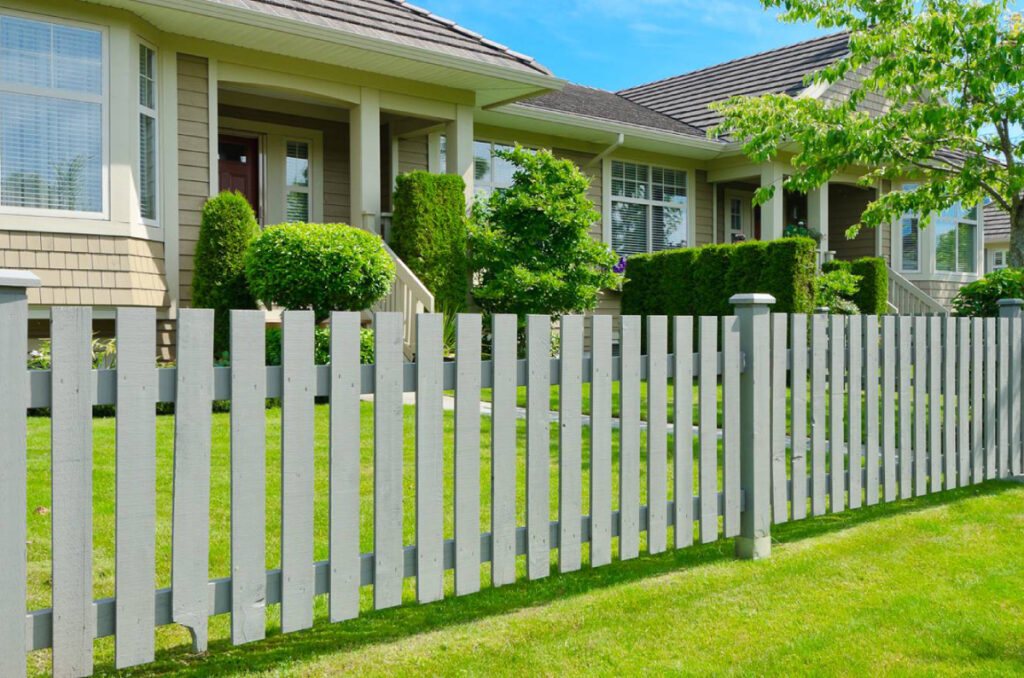DIY vs. Professional Fence Installation
When planning to install a new fence, one key decision is whether to do it yourself or hire a professional. Both options have their own benefits and challenges. This guide will help you understand the pros and cons of DIY fence installation versus professional installation, so you can make the best choice for your needs, budget, and skills.
DIY Fence Installation: Pros and Cons
Pros
1. Cost Savings
One big reason homeowners choose DIY fence installation is to save money. Doing the work yourself means you avoid paying for labor, which can be a major part of the cost. You’ll just need to buy the materials and any tools you don’t already have, which is often cheaper than hiring someone.
2. Full Control Over Design
With a DIY project, you control every detail of the fence installation. You can pick the materials, design, and layout according to what you like and need. This means you can create a fence that fits your home’s style and meets your specific needs.
3. Flexible Timeline
When you do it yourself, you can work at your own pace. You’re not tied to someone else’s schedule, so you can finish the project whenever you like. This is helpful if you have a busy life or want to spread the work over a few weekends.
4. Sense of Accomplishment
Completing a DIY fence installation can be very rewarding. There’s a special satisfaction in seeing a project through from start to finish and knowing you did it yourself.
Cons
1. Time-Consuming
Installing a fence by yourself can take a lot of time. Depending on the size of your yard and the complexity of the design, it might take several days or even weeks. If you’re busy, this could be a major drawback.
2. Skill and Experience Required
Fence installation needs some skill and know-how. If you’re not familiar with the process, you might run into problems that could lead to mistakes. Incorrect installation can make the fence unstable or not meet local codes, which could be costly to fix.
3. Tool and Equipment Costs
Even though you save on labor, you might need to buy or rent special tools for the job. This could include things like post-hole diggers, levelers, and saws. If you don’t have these tools, the extra cost might reduce some of the savings from doing it yourself.
4. Potential for Errors
Without professional experience, there’s a higher risk of making mistakes. Errors like incorrect post placement or wrong measurements can cause issues and may require costly repairs.
Professional Fence Installation: Pros and Cons
Pros
1. Expertise and Experience
Professional fence installers have a lot of experience. They know different types of fences and materials and the best way to install them. Their expertise helps ensure your fence is put up correctly and to a high standard.
2. Time Efficiency
Hiring a pro can speed up the installation process. Experienced installers work quickly and efficiently, often finishing the job much faster than a DIYer. This is great if you need the fence installed soon.
3. Quality Workmanship
Professionals are skilled at delivering high-quality work. They have the right tools and know-how to ensure the fence is installed properly, with secure posts and precise measurements. This quality reduces the chance of future problems.
4. Warranty and Support
Many professional fence companies offer warranties. This means if any issues come up after installation, they might cover repairs or adjustments. Pros can also give advice on maintenance to keep your fence in good shape.
Cons
1. Higher Costs
The main downside of hiring a pro is the cost. Labor can add a lot to the total price. While you get expertise and efficiency, you need to budget for this expense.
2. Less Control Over the Process
When you hire a professional, you have less control over the day-to-day work. While you can give input, the contractor manages the project. This might mean less flexibility with timing and design changes.
3. Scheduling and Availability
Professionals might have busy schedules. Depending on their availability and your location, you might have to wait for an appointment or adjust your plans. This could delay your project.
4. Finding a Reliable Contractor
Choosing a good contractor can be tricky. You need to find a reliable, reputable installer, which might involve researching, getting references, and comparing quotes. Ensuring you pick a trustworthy contractor is key to a successful installation.\
Conclusion
DIY fence installation can save money and offer customization but requires time, skill, and tools. Professional installation brings expertise and efficiency but at a higher cost and with less personal control. Evaluate your budget, time, skills, and goals to decide the best option for a successful fence installation.

